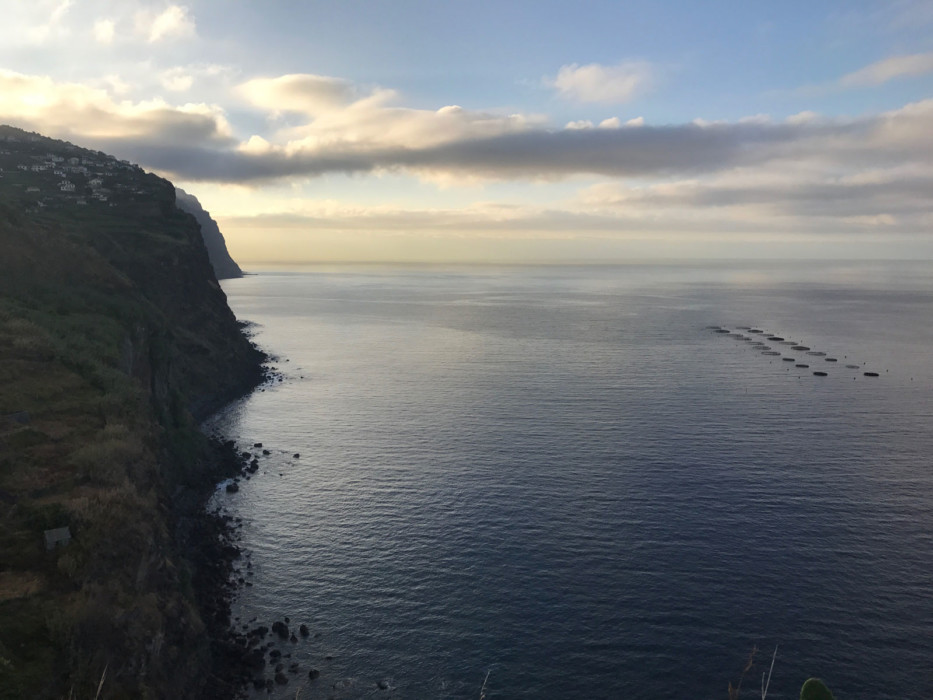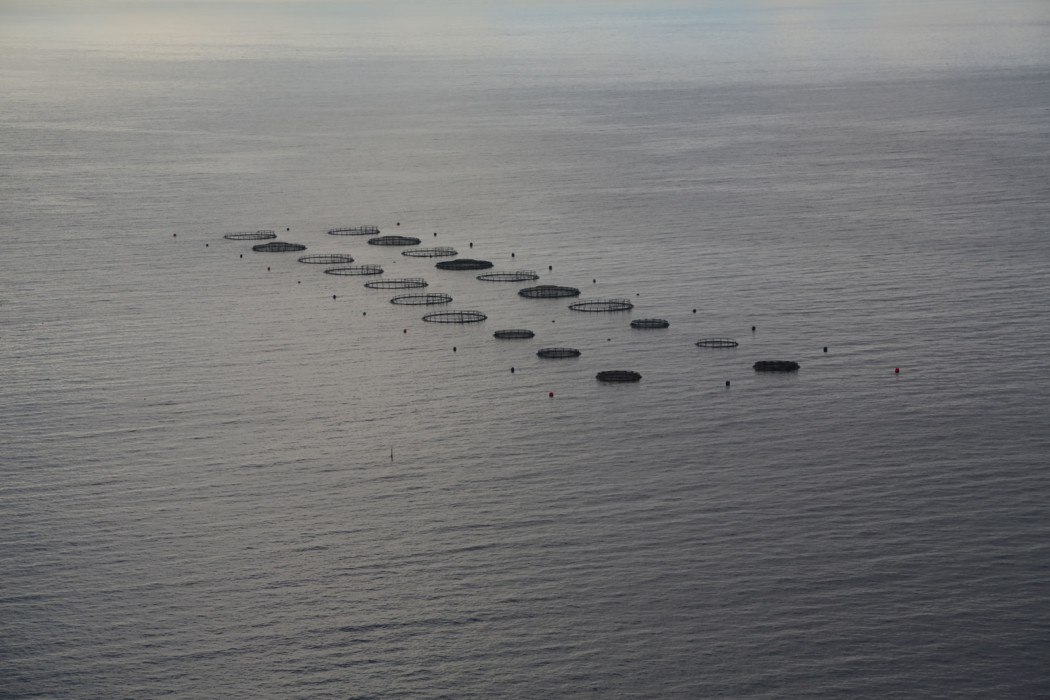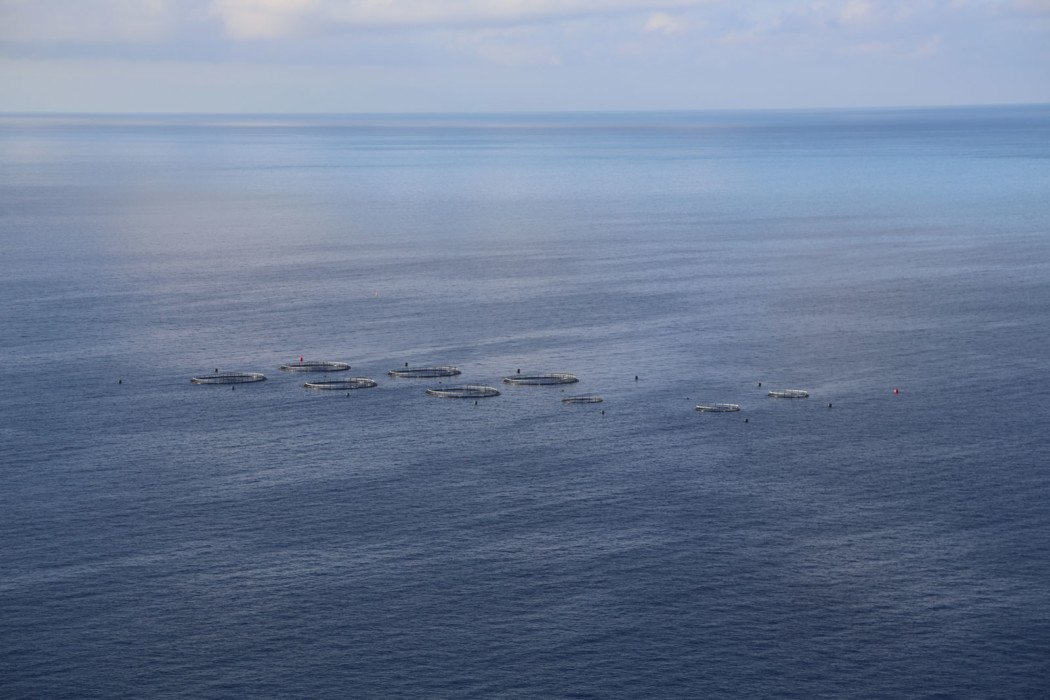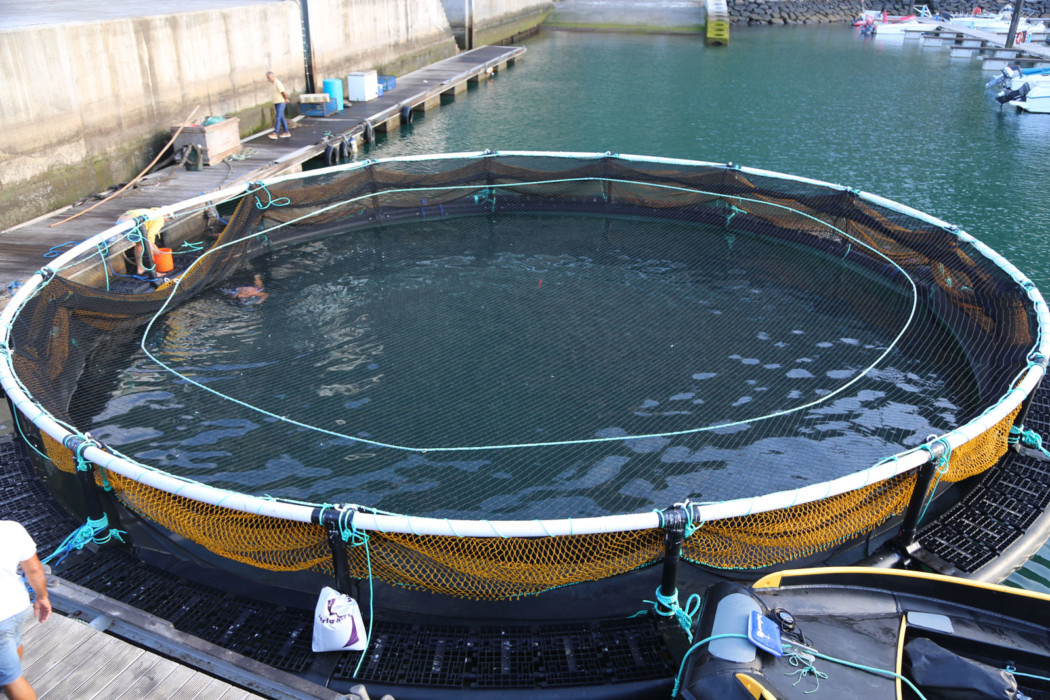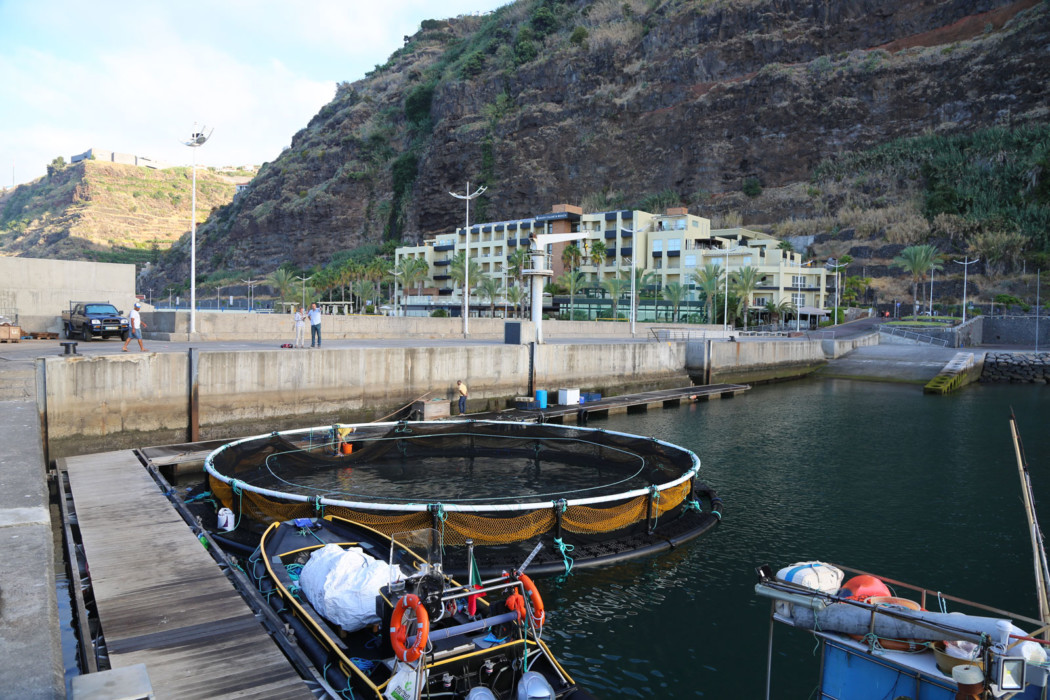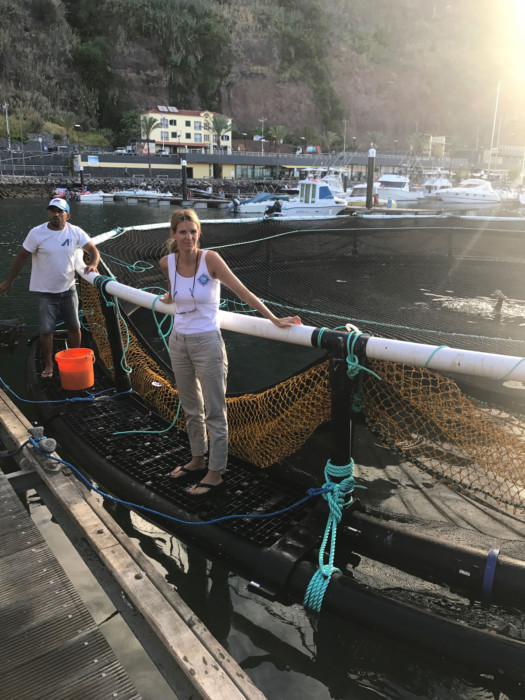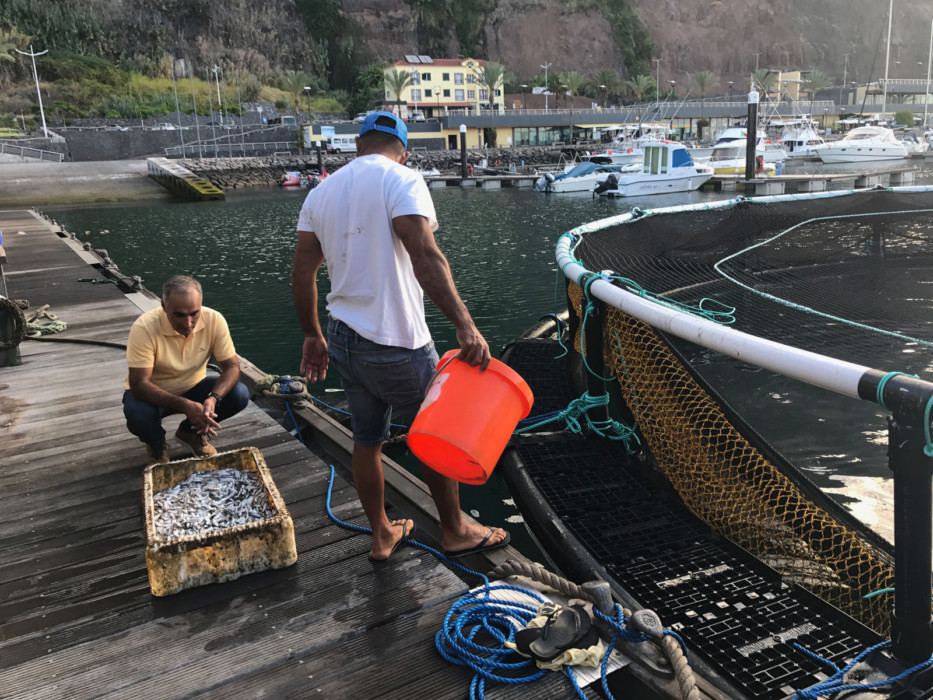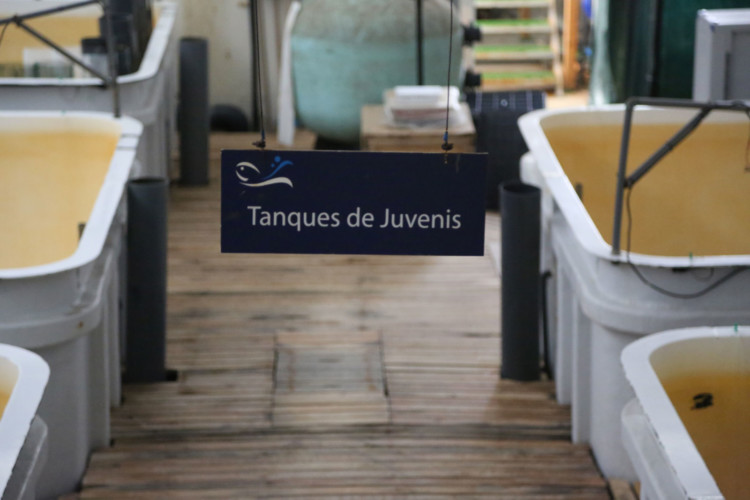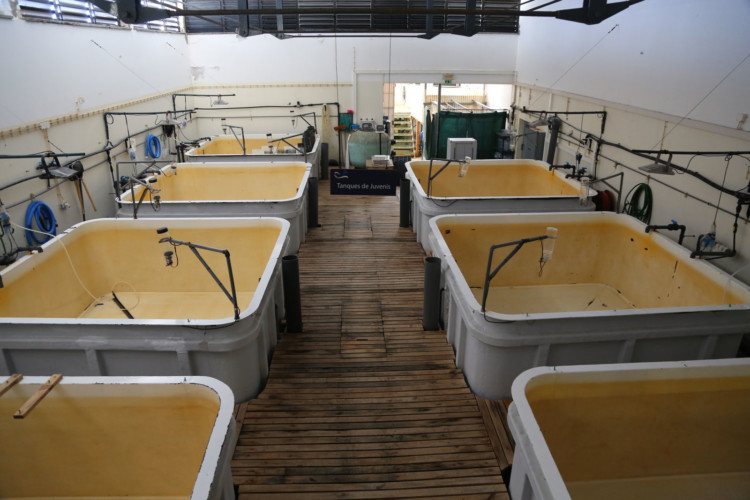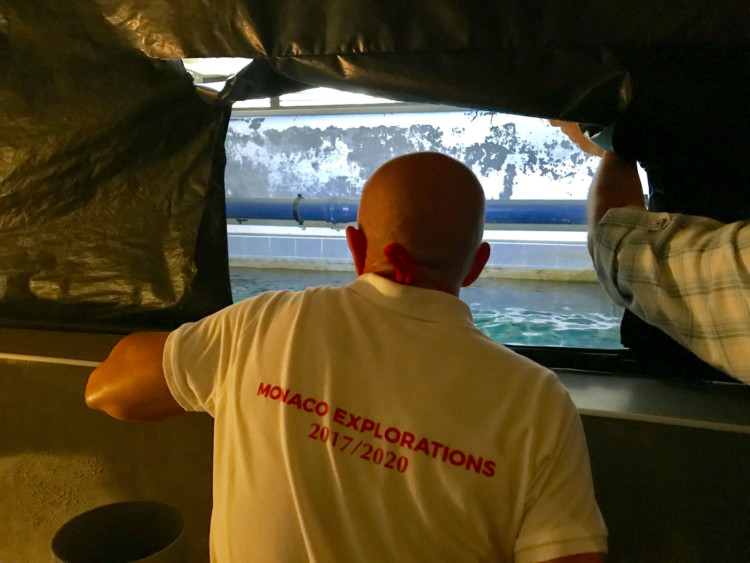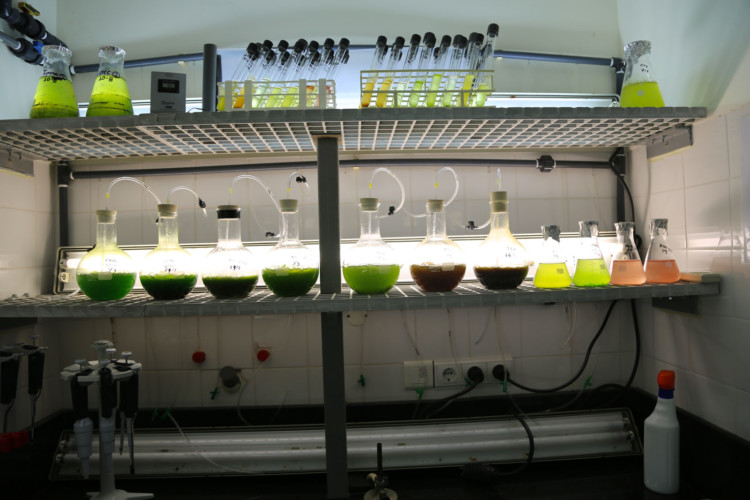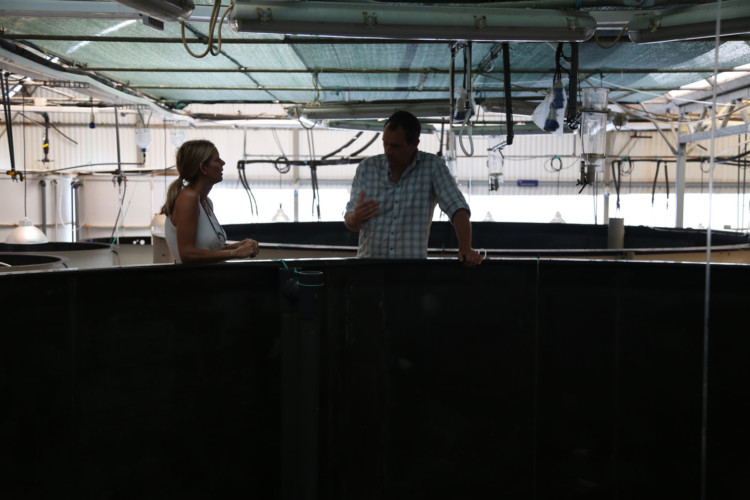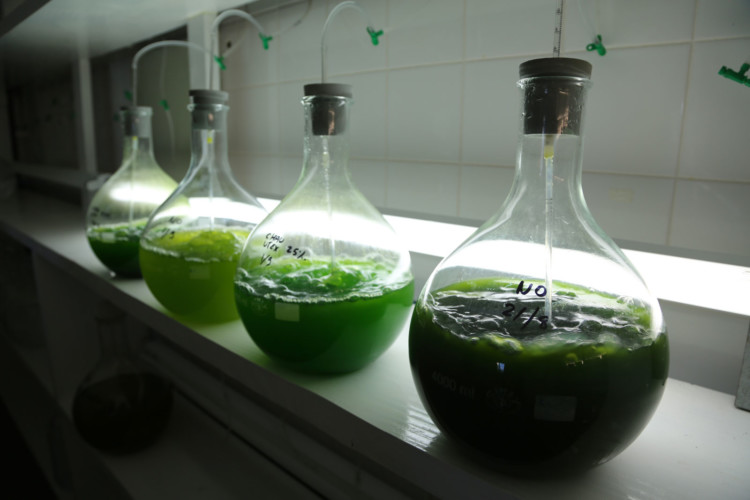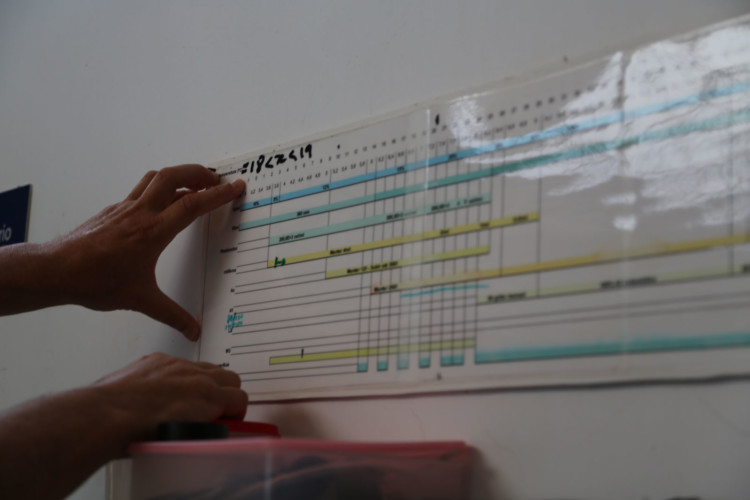[vc_row][vc_column width=”2/3″][vc_column_text]Today we went to the Centro de Maricultura da Calheta to meet with Carlos Andrade, Ph.D. Carlos is the Director of the Marine Aquaculture Division of the Madeira Fisheries Directorate.
In short, Carlos runs the division of the Madeiran Government that is responsible for regulation of fish farming in this autonomous region of Portugal. The center is an aquaculture research facility and fish hatchery that was built in 2000 after a successful pilot project, with the goal of attracting responsible fish farming to the region.
The center has done extensive research and has set a model for farming in the waters of the region. As a regulatory agency, they offer their research and knowledge to any private industry that brings their farm here. Madeira currently has 3 operational farms, plus one being built that will be operational this month, and planning in place for 11 total sites.
About two thirds of Europe’s seafood is imported, but in Portugal that number is higher. As an example; Portugal imports 13-14k tons of Sea Bream per year, and the only production of Sea Bream in Portugal is here in Madeira at one of the farms pictured below. They are able to produce only 1,000 tons annually.[/vc_column_text][/vc_column][vc_column width=”1/3″][gem_image position=”right” disable_lightbox=”1″ src=”26688″][/vc_column][/vc_row][vc_row][vc_column][vc_column_text]
Carlos drove us around the island to take a look at the 2 existing fish farms, shown above, and the third one, which just went into production yesterday with about 550k tons of fish. In fact, we were able to visit the last cage in the port before it was towed out to its placement in the farm. The fish are brought here from a hatchery and placed into the cages in the port. Next, a team works to remove any fish that have died in the transportation process as some of the stress of travel means there can be 3-5% loss. This is what was going on when we visited. Definitely not a job I would want!
At the aquaculture center, Carlos gave us a tour of the research labs and the fish hatchery. At the time of our visit, the hatchery was in a sterilization process. They “shut down” operations for 2 months to sterilize and clean, and break any potential cycle for parasites. Currently this is the only fish hatchery on the island, but the hope is that a private hatchery will open here in the near future, as the number of fish farms grows.
Fish farming is important for the economy here, as it helps to diversify and reduce the dependence on tourism. Also, islands rely on many imports for foods and other goods that aren’t produced on them, so fish farming and exporting is a way to have the opposite footprint in terms of imports/ exports, which helps a balanced economy. Aquaculture brings jobs to the area, not just at the farms, but at the processing and exporting sites as well.
Fish farming is quite the controversial topic in the media and amongst environmental groups, and Carlos helped us understand the ways in which fish farming, when done responsibly and with oversight and regulation, is a positive industry in places like Madeira. Carlos stressed the importance of aquaculture planning as part of their process. He explained that research must be done, well in advance of farms going into production, regarding environmental impacts and collaborative planning with other aqua users such as beaches, surfing, legal fishing, etc.
[/vc_column_text][/vc_column][/vc_row]
